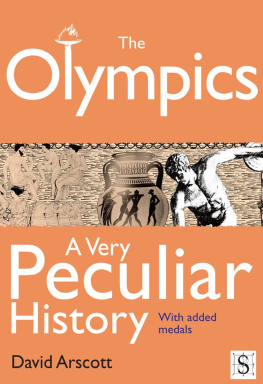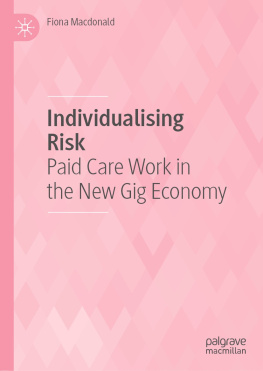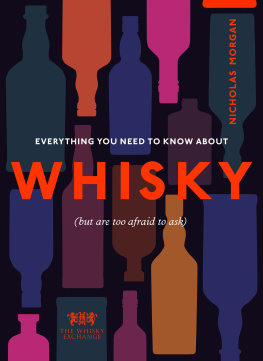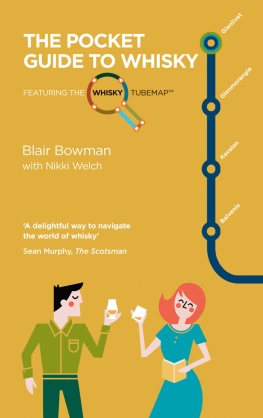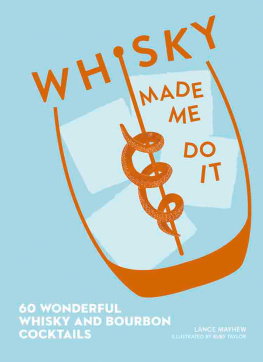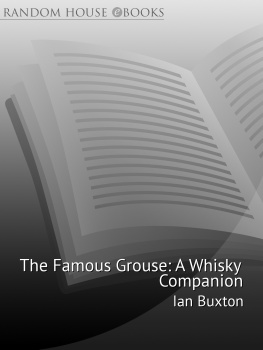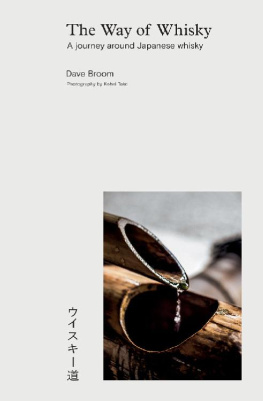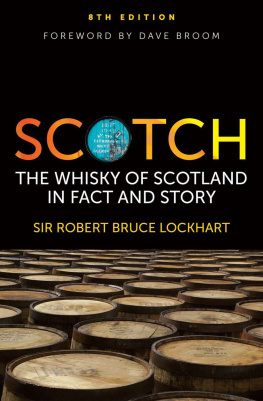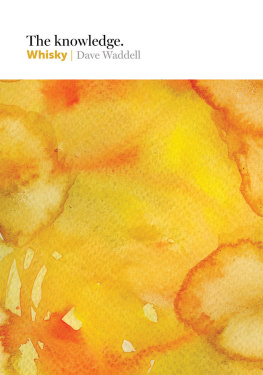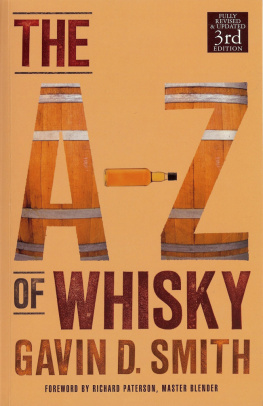Title Page
WHISKY, A VERY PECULIAR HISTORY
A wee drop o the hard stuff
Written by
Fiona Macdonald
Created and designed by David Salariya
Publisher Information
First published in Great Britain in MMXI by Book House, an imprint of
The Salariya Book Company Ltd
25 Marlborough Place, Brighton BN1 1UB
www.salariya.com
www.book-house.co.uk
Digital edition converted and distributed in 2012 by
Andrews UK Limited
www.andrewsuk.com
Editor: Jamie Pitman
Assistant editor: Jodie Leyman
Illustrated by: Mark Bergin
Additional Artwork: David Antram, Penko Gelev, John James, Li Sidong, Mark Williams
The Salariya Book Company Ltd MMXI
All rights reserved. No part of this publication may be reproduced, stored in or introduced into a retrieval system or transmitted in any form, or by any means (electronic, mechanical, photocopying, recording or otherwise) without the written permission of the publisher. Any person who does any unauthorised act in relation to this publication may be liable to criminal prosecution and civil claims for damages.
Every effort has been made to trace copyright holders. The Salariya Book Company apologises for any omissions and would be pleased, in such cases, to add an acknowledgement in future editions.
Visit our website at
www.book-house.co.uk
or go to
www.salariya.com
for free electronic versions of:
You Wouldnt Want to be an Egyptian Mummy!
You Wouldnt Want to be a Roman Gladiator!
You Wouldnt Want to Join Shackletons Polar Expedition!
You Wouldnt Want to Sail on a 19th-Century Whaling Ship!
Dedication
To my kind and hospitable neighbours: Slinte mhath!
FMacD
Quotes

O thou, my Muse! Guid auld Scotch drink,
Whether through wimplin worms thou jink,
Or, richly brown, ream oer the brink,
In glorious faem,
Inspire me, till I lisp and wink,
To sing thy name!
Robert Burns, Scotch Drink, 1786
(guid auld = good old; wimplin = curling; worms = parts of distilling apparatus (cooled copper pipes in which vaporised alcohol condenses); jink = twist and turn; ream = flow; faem = foam; lisp = speak with difficulty)

Introduction: Scotland in a bottle?
Whisky is a great industry in Scotland. Whisky is a great pleasure in the rest of the world. So says French whisky writer Jean-Marie Putz. The statistics agree with him. In Scotland, around 10,000 people are employed full-time making and selling Scotch whisky, while a further 35,000 jobs are linked to the whisky trade. In 2007, whisky exports accounted for 13% of Scotlands overseas earnings, and contributed over 2.7 billion to Scotlands economy. Worldwide, over 300 million litres are sold and presumably drunk with pleasure every year.

A magic potion?
Whisky is only a solution of malt (grain sugar), yeast and water, but it has been praised and prized for hundreds of years. It is surrounded by countless legends and beliefs about its supposedly mystical, magical qualities. According to a 17th-century Scottish manuscript, whisky will (in this order):
heal wounds
polish brass
sharpen the wits
make a sad man happy
preserve youth
help women to conceive
make good wine out of stale and much, much, much more.

Today, inexpensive, mass-produced whisky blends are widely available. They are piled high and sold cheap on supermarket shelves although they are perhaps not yet cheap enough to use as metal polish. But fine whisky is still a rare and costly luxury; a single bottle can cost a small fortune.

The most expensive whisky in the world?
In November 2010, international auction house Sothebys in New York sold what was advertised as the worlds most expensive bottle of whisky. It was filled with highly prized 64-year-old malt whisky from Scotlands famous Macallan distillery.
The price? Estimates started at US $150,000, but the bottle actually fetched US $460,000 (GB 288,000). (The proceeds were donated to a charity that supplies clean drinking water to developing countries.) But perhaps the most valuable part of this very, very costly item was the decanter it came in. Hand-crafted by Lalique of France in exquisite crystal, it was a unique work of art.
On the other hand, if youd like to drink history, the last surviving bottle in the universe of Irish Nuns Island whiskey also went on sale in 2010. The Nuns Island distillery closed almost 100 years earlier. Who knows what the whiskey will taste like? You can find out if you have the asking price for such a unique rarity: 100,000.

Tasting notes
The taste of whisky is easy to recognise but extremely difficult to describe. Unbelievable numbers and combinations of adjectives and nouns have been used to communicate its appearance, flavour and aroma, sometimes successfully:
beautiful custard poured over barley pie
bandages and antiseptic
Parma violets, with some damp hay
busy, sweaty sock
a slight hint of liquorice/trout fishing basket
wet cement
freshly hung wallpaper
celery and citrus
pillow-soft vanilla
a tang of gunpowder and a warm nuttiness.
In the case of one very memorable bottle:
It doesnt just hit the palate, it caresses it with the nubile fingers of a young lady and the talons of an eagle.
Jim Murrays Whisky Bible 2010
One further fact for whisky connoisseurs to consider: different casks and bottlings of famous whiskies are known not as prosaic packaging, but as much more poetic expressions. Do we wonder why?
Whiskys worldwide winners
The name of Scotch, together with its composition, packaging and promotion, is strictly protected and controlled and yet local whiskies are made and enjoyed all round the world, from Argentina to New Zealand. In 2010, a whisky made in India was chosen as third finest in the world, out of almost 4,000 different bottles! An American whiskey came first, and a Scottish whisky second. Indians now drink more whisky than any other nationality. They consumed 1,179 million litres in 2009 and two thirds of this was produced in India.
Jekyll and Hyde?
Like the Scots themselves, and like the famous two-faced character invented by Scottish writer Robert Louis Stevenson (18501894), whisky is paradoxical. It takes great skill and many years to produce, but is often carelessly consumed in seconds. It wrecks budgets, ruins marriages, wastes lives and yet few celebrations are complete without it. Nor are funerals. Traditionally, in Scotland, only men accompanied a body to the grave. Then, in even the most sober, upright families, it was an accepted sign of respect to drink the funeral dram.

Next page

